Huge New Fuel Source Found: Old Cars
Talk about unfortunate timing: Just as the scrapping incentives all around the world are running out, a Japanese company found a way to turn old cars into fuel.
Taxi! Volkswagen Electrifies Milan
Did you ever drive in Milano, Italy? Take my advice: Don’t. Park your car, take a taxi. That must have gone through the minds of the boys in Wolfsburg, when they were searching for a name for their dedicated taxi prototype. “Mamma mia! Let’s call it Milano!”
Japan's Government Sees Half Of Their Cars Run On Electricity
Japan’s Ministry of Economy, Trade and Industry is electrified. They think, next-generation automobiles will make up as much as half of the new passenger cars sold in Japan in 2020, says The Nikkei [sub].
By 2020, the ministry aims to have 2 million household chargers for electric vehicles installed, along with 5,000 fast-charging stations for commercial fleets. The ministry promotes joint development of infrastructure projects between the government, industry and academia to help pave the way for Japan to become the world’s most electrified nation.
People who make cars for a living have a more conservative outlook. Privately, they think the ministry should lay off the sake.
Ford Foretells Fabulous Fourtune, Disses Displacement
The V6 wars may show no signs of stopping. However, Ford is quietly making contingency plans for a future conflict: The war of the four-bangers. Start hoarding your big bore brutes and head for the hills. Ford may want to take them away.
Ford will use the upcoming SAE World Congress, to be held from April 13-15 in Detroit, to showcase its engine-building prowess. Ford will demonstrate to the world’s most eminent confab of piston-heads that there is a replacement for displacement.
CAFE For Free
On April 1, new federal fuel economy CAFE standards went into effect. By 2016, new cars should get 35 mpg or thereabouts. The true number remains an exercise in abstract algebra. Says Consumer Reports: “The new standards require different fuel economy averages for each manufacturer and for each type of vehicle (such as small, midsized, and large sedans or SUVs).” There are plenty of loopholes and offsets. Extra credit for cars that take E85 Ethanol, for instance. And here is another huge loophole:
Japan Tackles Electric Car Infrastructure Predicaments. Manufacturers Lower Prices
Japan appears to get extremely serious about all-electric cars. What stands in the way of their success? Apart from the price (we’ll get to that later:) It’s the infrastructure, stupid. Fabricating, fuelling, and fixing an ICE-powered car is supported by an infrastructure that had more than 100 years to grow. Keeping a plug-in running needs an infrastructure to guarantee mobility away from the charger at home. Japan’s Environment Ministry teams up with Nissan, Sumitomo, and other companies to build the infrastructure for electric vehicles, reports The Nikkei [sub].
What's Wrong With This Picture: Yesterday's Future Today Edition
GM Exhumes Its Hydrogen Dreams
It’s been said many a time that the problem with hydrogen as an energy storage system for cars is that it is always the future and never the present of transportation. Indeed, hydrogen has nearly fallen of the alt-fuel radar in recent years, as present-techs like hybrid and even electric drive have matured. But the dream is not dead. The great hydrogen hope now lives with General Motors, in the form of a new, lighter-weight fuel cell which GM says will be production-ready by 2015. The new cell is 225 lbs lighter and uses one-third less platinum than the systems being tested in GM’s 30-month “Project Driveway” Equinox fuel-cell vehicles (FCVs). That leaves more platinum for trimming Escalades, and has GM thinking that real-life series production of FCVs could be possible. GM’s Charles Freese tells Automotive News [sub]:
Our learning from Project Driveway has been tremendous. The 30 months we committed to the demonstration are winding down. But we will keep upgrades of these vehicles running and will continue learning from them while we focus efforts on the production-intent program for 2015. We will continue to use the Project Driveway fleet strategically to advance fuel cell technology, hydrogen infrastructure and GM’s vehicle electrification goals
Honda Hearts Hydrogen: Let The Sunshine In!
Just when you thought hydrogen was dead, Honda comes up with a system that allows you to make homemade hydrogen, using nothing but free sunshine. In the grand tradition of hydrogen cars, the sunny technology is just not quite there yet.
Volkswagen's Elektroshock
Financial Times calls “Volkswagen a long-time sceptic about hybrid and electric cars.” However, the pink sheet announces that Wolfsburg “has officially shifted gears.” That VW had been a sceptic is an understatement. Despite green initiatives for public and political consumption, internally, they laughed about hybrids and electrics. Their private position was that the consumption and emissions of a hybrid could be achieved with their low displacement supercharged engines and some weight savings. Pure plugins? Ach du mein Lieber. People have their next vacation in mind when they buy a car, and last VW looked, there were no charging stations on the Brenner Pass to Italy.
The official gear shifting occurred at last week’s Geneva motor show, where Volkswagen announced an “unprecedented” drive into electric vehicles.
PSA And Mitsubishi: No Tie-up, It's A Hook-up
With the Chinese planning an electrical assault on Europe, with Nissan preparing their Leaf and with Renault charging-up Zoe, Peugeot-Citroen (PSA) is probably feeling a little exposed right now. Bad enough PSA failed to work out an agreement with Mitsubishi. Now they’re deficient in the no carbs category. But don’t worry, a white knight is coming to the rescue and offering them a ready-made electric vehicle. That’s right, they couldn’t work out a capital tie-up, but PSA and Mitsubishi Motors worked out an agreement on electric cars.
China Invades Europe, Again
Even since Landwind crash test, and the Brilliance crash test, the reputation of Chinese cars in Europe has been a little, shall we say, challenging. Watching the bonnet of a car crumble like Professor Gilbert’s theory on Toyota’s UA tofu does have its effect on prospective customers.
But none of this seems to worry BYD. Europe is their next target. Autocar reports that BYD, the maker of China’s biggest selling car, the F3, will be coming to Europe in 2011. Not with their bestselling F3, but with a pure electric E6. The car was introduced at the Geneva Motor Show.
UK Planning A Network Of Charging Points
Brazil and some in the U.S are firmly backing ethanol as the fuel of the future. The UK thinks that electricity is the way forward, and they’re putting our money where their mouth is. The Independent UK reports that 11,000 charging points for electric cars are to be built in London, Milton Keynes and the North East. This project is being part supported by the UK government to the tune of £30 million. Coincidentally, the North East is where Nissan’s UK plant is. Is the government trying to butter someone up to produce a certain type of vehicle there? If successful, (or the government wants to force it on the public) then a second wave of charging points will roll out.
This shouldn’t really come as a, well, shock as the government is solidly pro-electric cars. In the pre-budget reports, Chancellor Alistair Darling announced tax rebates for electric cars. But there is another little problem:
Germany's Vanishing Veggie Diesel
Europe, and especially Germany, reports declining diesel dependency. From a nearly 50 percent share a few years ago, the share of diesel driven cars in Germany dropped to 31 percent in 2009. Two reasons: The favorable taxation of the oil had been scrapped. And speaking of scrapped, the “Abwrackprämie, or cash for clunkers, had favored a trend towards low displacement gasoline burners. (In January, the diesel share climbed back to 40 percent in Deutschland.) Badly mauled were the manufacturers of bio (a.k.a. “veggie”) diesel.
Major Study Confirms EV Batteries Too Expensive; Predicts 26% Of New Cars Will Be Hybrids Or EVs In 2020
A major study by Boston Consulting Group (BCG) has determined that even if EV battery costs drop by a projected 65% by 2020, the economics will still constrain their widespread adoption. It challenges the industry assumption that a $250 per kWh cost for automotive batteries can be achieved by that date. Nevertheless, the report projects that hybrids, plug-ins and pure EVs will make up 26% of new cars sold in major developed markets. Specifically, the study projects 1.5 million EVs, 1.5 million range-extending EVs, and 11 million hybrids produced in 2020. Regarding the manufacturer’s holy grail of $250/kWh batteries:
Given current technology options, we see substantial challenges to achieving this goal by 2020. For years, people have been saying that one of the keys to reducing our dependency on fossil fuels is the electrification of the vehicle fleet. The reality is, electric-car batteries are both too expensive and too technologically limited for this to happen in the foreseeable future.
—Xavier Mosquet, Detroit-based leader of BCG’s global automotive practice and a coauthor of the study
The study takes on the expectations that current EV technology with its range and cost limitations can effectively replace the IC powered car head on,
Japan To Set World Standard For Hybrids And EVs
The United Nations UNECE World Forum for Harmonization of Vehicle Regulations is likely to adopt many Japanese safety rules for hybrid and electric vehicles as a global standard, says the Nikkei [sub].
Currently, there are no ECE safety standards for hybrid and electric vehicles. Japan has pushed its domestic safety rules to be adopted as international standards. Chances for adoption are good, Japanese companies and rulemakers are the pioneers in the field. Europe, which usually dominates ECE rule making, is lagging behind in the development of hybrid and electric vehicles, and doesn’t have much to lose if the Japanese standards are accepted.
Shunned Volt Battery Maker Joins Forces With China
After a two year neck-and-neck race between battery makers LG Chem and A123, GM awarded its Volt contract to Lucky Goldstar – make that LG Chem, or rather their subsidiary Compact Power: Now the Lucky Guys are waiting for the thing to hit the road in large quantities. A123 was widely regarded as the far better technology, the Koreans most likely were cheaper – we’ll most likely never know.
Now, A123 cut a possibly much bigger and more lucrative deal. A123 is forming a joint venture with China’s top carmaker SAIC to build and sell battery systems for electric vehicles in the world’s largest auto market, and possibly beyond.
Citroen C1 ev'ie Named Official Rental Car Of The Copenhagen Climate Conference
EV Mode Creates Crisis Mode For Engine Parts Makers
For manufacturers of engine timing chains, main bearings or any of the hundreds of unique components for engines and transmissions, EVs like the Nissan Leaf pose an enormous threat. Decades of investment in the manufacturing technologies and IP are potentially rendered irrelevant if the switch to battery-powered EVs progresses at the rate that its optimists proclaim. Bloomberg tells the tales of woe from anxious Japanese suppliers: “It’s a crisis-like situation,” said Toru Fujiwara, head of Tsubakimoto’s auto-parts division. “With electric cars, there’s no way we can apply our current technology.” Especially when their current technology lacks AC or DC.
Tazzari Zero: Can an Urban EV Be Sexy?
Even frugal cars need to be desirable. Most electric vehicles are anything but. Right now, EVs are slow, ugly, cheap, and not good to drive. In contrast, the Tazzari Zero from Imola, Italy, wants to be a “wanna have”: great to drive, good to sit in and easy on the eyes. Here’s the data: cast-aluminum, glued frame, central motor, RWD, low center of gravity, Li-Ion Fe batteries. A two-seater that is a bit longer, but lower than a Smart. Weighing just 545 kg (1202 lb), 150 N·m of torque and 15 kW engine power would seem to go a long way. The top speed is 56 mph and it has a range of 88 miles. Gorgeous looks (if you ask me), with a dose of NSU TT attain the right balance of aggressive and cute.
China's E-Cars: Big Plans, Big Hassle
China has become the biggest producer, consumer and exporter of electric vehicles in the world. But China’s people are facing huge problems buying and driving them.
Riversimple: Leave It To A Pich . . .
Hydrogen-fueled propulsion has been the Next Big Thing since the 1970s. Recently, it has also been assigned to the past, at least by US Energy Secretary Steven Chu, who said, “We’re going to be moving away from hydrogen-fuel cells for vehicles.” Thus, hydrogen propulsion seems to be one of those things that are everywhere in the time-space continuum except in the present. Some hydrofans are refusing to give up, though. VW’s evil genius boss of bosses, Ferdinand Piëch, has a nephew, Sebastian Piëch, who is a grandson of Ferdinand Porsche. Seb seems to be a smart, rich guy who speaks four languages, has an engineering and marketing background and lives in Shanghai and Tokyo. He’s a big name among big names at Riversimple, an alternative-car company which recently presented its first car in London. If Piëch had a monkey-man slogan, it’d be “ideas, ideas, ideas.”
Is CAFE Good for Detroit?
The Detroit News covers the report by the University of Michigan’s Transportation Research Institute (because TRI texts are behind a password lock). Authors Walter McManus and Ron Kleinbaum write,
Story after story frames the issue of a struggling industry that will not survive tough fuel economy standards. However, there is substantial evidence that the domestic auto industry has ignored customers’ demands for fuel economy, and has consistently undervalued the impact of fuel economy on their profit potential.
Plus,
Our view is that GM is still not prepared to change enough, fast enough to achieve the transformation it needs to make.
Go on . . .
Obama Cuts Hydrogen Research Funds
President Bush’s imaginatively-named “ Freedom Fuel Initiative” has been slashed by President Obama, cutting $100 million per year from hydrogen research funding according to DailyTech. Government spending on hydrogen fuel cell technology will drop from about $169 million per year to about $69 million, as a natural and healthy skepticism grows about hydrogen’s short-term potential. “The probability of deploying hydrogen fuel-cell vehicles in the next 10 to 20 years is low,” say Department of Energy spokesfolks, taking an early lead for understatement of the week.
E85 Boondoggle of the Day: Resurrection
President Obama gave the dying ethanol industry a huge shot in the arm Tuesday when he announced that over $780 million of stimulus money will be spent on biofuel “research and commercialization,” guided by an all-new Biofuels Interagency Working Group. Think of a giant, government-funded R&D/marketing department for the ethanol industry, and you’ll have some idea of what we’re looking at. “We need to work in concert with the industry to figure out how to do a better job to create a market for biofuels, how to increase the use of flex-fuel vehicles, how we can assist those who market, and to coordinate the infrastructure, and do all this in a sustainable way,” says Agriculture Secretary, Tom Vilsack. Unfortunately “creating a market” isn’t easy. The US already spends more on ethanol subsidies than any other renewable energy source, and has been rewarded only with crashing ethanol demand and rampant refinery bankruptcies. Good thing hope springs eternal in the breast of K Street.
Ex-Tesla Spinmeister Darryl Siry: China Key To EV Success
A post at the former Tesla PR chief’s personal blog recounts the debate inside Tesla over where to manufacturer the firm’s WhiteStar sedan. Siry describes grappling with the tradeoffs between a reasonable price and skeptical public perceptions of Chinese cars. “The part causing the most conflict,” writes Siry, “was that it was clear in the world of consumer electronics and chip manufacturing that low cost manufacturing had been achieved while also maintaining the highest standards in quality. Why couldn’t this be the same case for automobiles?” After all, he argues, your iPhone is designed in California but built in China—and nobody confuses it with a purely Chinese product. Pointing to the Volt’s projected $40K price point for a Cruze-based compact/mid, Siry argues that cost is too important to phasing EVs into the market to be ignored. And that firms like his former employer will pay the price for not taking advantage of China’s opportunities.
Making EVs Work The American Way
Nissan is determined to sell electric cars in the US beginning in 2012, but the problem of building a charging infrastructure continues to bedevil product planners. Charging stations must be plentiful, convenient, and most importantly EV owners must be willing to wait there at least half an hour to complete a fast-charge of their EV’s batteries. Having added it all up and thrown in just a dash of condecension towards American culture (or lack thereof), Nissan’s boffins reckon that fast food joints are the perfect location for EV charging station, reports Automotive News [sub]. Of course the idea of sitting around a fast food joint for a half-hour while your car recharges for another 80 miles of driving kind of defeats the idea of fast food, but no matter.
Europe Preparing Duties On US Biofuel
The New York Times reports that the European Union is drafting trade duties on imported American biofuels to protect its own $10b biofuel industry. Even though both the US and the EU subsidize biofuels, European producers complain that American producers benefit from production subsidies in the US and retail subsidies in Europe. The EU has been investigating these claims, and tariffs of 44 euros per 220 lbs of imported biofuel could be put in place by this summer. Meanwhile American subsidies for corn ethanol production are set to expand indefinitely. We’ve argued that trade disputes could bring the bailout boom to a rapid close, but perhaps such a dispute will rid us of wasteful ethanol pork first.
VW and Opel: Just Say Yes to CNG
Efforts of folks like Willie Nelson notwithstanding, the alt-fuel scene used to be pretty uncool. Just picture guys who spend their evenings filtering used grease they get for free from french-fry factories, or travelling salesmen who’ll drive a detour of 20 miles to fill up with Compressed Natural Gas (CNG). But the supply of pretty good alt-fuel cars is increasing—at least on the right side of the Atlantic, where VW and Opel have recently introduced sexier Euro-CNG-mobiles. VW is now selling a technologically-interesting Passat version that utilizes both a turbocharger and a compressor.
IWouldn't
OK, so I linked to this in the post below, but it really deserves its own post. After all, few things define the times quite as poignantly as Chrysler’s peculiar brand of insanity. See, the problem with the psychology of recession is that it causes inordinate self-doubt among panicked executives and their long-suffering staffs. Which, if you’re Chrysler, might be a good thing. Except that for some reason, the principles of reflection and continuous improvement always take a back seat to some brainiac who thinks that the problem is that the firms products aren’t exactly like iPods. At Chrysler, this brainiac is named Peter Arnell. In an interview with AdWeek, Chrysler’s “Chief Innovation Officer” lives up to his cliched title by spewing the most ridiculous twaddle about his pet project, the Chrysler PeaPod. For those who don’t know, the PeaPod is a GEM Low Speed (Neighborhood Electric) Vehicle (LSV/NEV). This means that the PeaPod is limited to 25 mph and is barred from thoroughfares with speed limits of higher than 35 mph. In other words, it’s useless. Unless you live on a golf course or in a gated retirement community. But the way Arnell tells it, the PeaPod is just a Wired Magazine cover away from becoming the next Apple killer app.
Toyota Allegedly Developing Solar Car: A Case Of Too Much Sake?
It would be everybody’s dream come true: A car running on nothing else than sunshine. Well, not everybody’s dream maybe. In Saudi Arabia, they have a lot of sunshine, but it doesn’t fit in tankers. “Toyota Motor Corp. is secretly developing a vehicle that will be powered solely by solar energy in an effort to turn around its struggling business with a futuristic ecological car,” reports AP via Yahoo News. AP says, Toyota is working on an electric vehicle that will get some of its power from solar cells on the vehicle, and that can be recharged with electricity generated from solar panels on the roofs of homes. As a next step, says AP, “the automaker later hopes to develop a model totally powered by solar cells on the vehicle.” Sounds unbelievable? AP says they have it on good authority.
Hydrogen Industry Wants $1.17b Of Your Money (With More To Come)
Oregon's Races Towards EV Future
Oregon’s governor Ted Kulongoski is currently getting some flack in our comments section over his pay-per-mile road tax scheme. But this is not the only green-oriented plan Kulongoski is floating, having already confirmed that Nissan will provide EVs for the state fleet in 2010. Another controversial transportation proposal of Kulongoski’s is to replace the $1,500 hybrid tax credit with a $5k credit towards the purchase of an all-electric car. If this plan does go into effect, it will make your Tesla Roadster (or Nissan Better Place-mobile) a little more affordable, just be prepared to have your doors blown off by a Datsun 1200 when you hit the road. Check out Oregon Field Guide’s visit with White Zombie, the zero-emissions ass kicker you never saw coming.
Wild-Ass Rumor Of The Day: Mazda RX-9 Partially Hydrogenated?
What The NSFW Is Wrong With This Country?
Is your faith in your country a little shaken by recent political and economic events? Man have you come to the wrong place. We’ve found a pair of stories today which seem to jointly encapsulate every negative stereotype and overly-broad criticism of America. And by God, they aren’t jokes either. First up, we have the story of a million-dollar Mustang on eBay from the Cardomain blog. That’s right, someone is asking for a million big ones for a 1998 lambo-doored Roush Mustang with 175k on the clock. Why? To quote the eBay listing: I am selling this vehicle, which is the only material thing I truly own, because I am trying to save my home and family. I will ship this vehicle anywhere in the world at my expense. the asking price is $1,000,000.00 why?? because i am in serious financial trouble. The sale of this vehicle is targeted to any millionaire out there who is willing to help get me out of my current financial situation. this vehicle is being sold as is. Shockingly, post-bailout audacity isn’t the most nauseating story on the autoblogosphere today. Our second story is so repulsive and national-pride-obliterating that we have to hide it behind the jump. Grab a barf bag and a change of citizenship form and check it out…
America's Assault On Battery Production Targets Taxpayers
Fourteen US companies have ganged up on the taxpayer to demand $1 billion so they can get back into the battery game. Today’s Wall Street Journal tells the story of this “latest pitch from corporate America to inject federal dollars into a project”. Alliance participants point to the 1987 creation of Sematech as an example of a successful government-industry partnership. There are, however, some big differences between the US Semiconductor industry of 1987 and the almost non-existent US advanced battery industry of today. The US’ semiconductor industry was a world leader in 1987 and was shocked into further efforts by the rise of Japanese competitors who made higher quality, lower priced memory chips. The US battery industry, on the other hand, was largely abandoned by indigenous firms as they chased ever higher return-on-investment businesses in order to boost short term stock prices. The story of failing to keep a hand in significant games due to the lure of better profits elsewhere has been told over and over again in America’s MBA infested halls of shame.
E85 Boondoggle Of The Day: Bioethanol Hits Rock Bottom
A new study of alternative energy strategies by Stanford professor Mark Jacobsen [via Green Car Congress] ranks corn-based and biomass ethanol as among the worst alternatives to fossil fuels. According to the study, “the Tier 4 combinations (cellulosic- and corn-E85) were ranked lowest overall and with respect to climate, air pollution, land use, wildlife damage, and chemical waste. Cellulosic-E85 ranked lower than corn-E85 overall, primarily due to its potentially larger land footprint based on new data and its higher upstream air pollution emissions than corn-E85.” These results were calculated by comparing wind-powered battery-electric vehicles (BEVs), wind-powered hydrogen fuel cell vehicles (HFCVs), concentrated-solar-powered-BEVs, geothermal-powered-BEVs, tidal-powered-BEVs, solar-photovoltaic-powered-BEVs, wave-powered-BEVs, hydroelectric-powered-BEVs, nuclear-powered-BEVs, coal-with-carbon-capture-powered-BEVs, corn-E85 vehicles, and cellulosic-E85 vehicles (listed in order of the study’s calculated impacts).
China To Drop Hydrogen Bomb On LA
Guess who will be at the 2008 Los Angeles auto show, November 21-30? A Volkswagen Passat. But it won’t be just any Passat. It will be a Passat produced by Shanghai VW. As if this is not shocking enough: The thing will be powered by a hydrogen fuel-cell. Shanghai Security News humbly reports that this might be the “first China-made new-energy car model of the Volkswagen brand to be displayed at an auto show.” It for sure is the first Made-in-China VeeDub ever to enter a US show. And it runs on hydrogen. How about that. The powertrain was jointly developed between SVW’s SAIC, Tongji University and Shanghai Shen-Li High Tech Co., Ltd. The car, veedubbed “Lingyu,” will reach a top speed of 150 km/h and should be good for more than 300 km at one hydrogen charging, albeit “with further innovation and maximization,” say the Security News via Gasgoo. SVW had built 500 fuel-cell hybrid sedans already for the green Olympic fleet, and wants to mass-produce the hydrogen fuel-cell Lingyu by early 2010. But will it sell?
Volt Birth Watch 113: Inside The Volt Battery Development
E85 Boondoggle of the Day: Wherever The People Are As Green As The Money
EV Rolls-Royce Phantom: Sacrilege, The Future, Or Bad Crazyness?
Materials Prices Dip
Thanks to the global economy’s stomach-churning loop-the-loop, demand– and prices– for auto-related commodities like steel and oil are dropping. For the moment anyway. Automotive News [sub] reports that the downturn in commodity prices couldn’t come at a better time for profits-challenged automakers, who will finalize supplier contracts this December. By locking in a lower price now, automakers will put the onus on suppliers to renegotiate if commodity prices go back up over the next year. Hear that? It’s GM VP for purchasing and supply chain Bo Andersson rubbing his hands and cackling maniacally. Andersson plans “a different mix of contracts with steel makers in a bid to get lower prices for 2009,” despite supplier concerns that the cost of raw materials such as coke and iron ore have not fallen as rapidly as the price of finished steel. Bottom line?
Paris Auto Show: A Short Test Drive in the Electric Mitsubishi IMiEV
Lexus Busted For Greenwash Lies. Again.
Who Killed the Hybrid Minivan?
Where would we be without Digg? Thanks to the collective hysteria of a thousand Diggers, we learn that the Gas 2.0 blog is baffled by the fact that Toyota builds an AWD hybrid minivan that gets 40 mpg and doesn’t sell it stateside. Gas 2.0’s Nick Chambers has fond memories for Toyota’s old Previa, and damns its US-market replacement, the Sienna for being a gas hog. But the spiritual successor to the Previa, the Estima, has been sold to the Japanese in hybrid form since 2001. The baffling unfairness of it all even had the Union of Concerned Scientists in a tizzy, circulating an online petition urging Toyota to bring the Estima hybrid to the states. Which it almost certainly won’t. A hybrid Sienna is considered likely to arrive sometime around 2010, but that’s not impressing people who are new to the concept that US-market vehicles consistenly lag behind Euro- and J-market offerings in efficiency. “Yo, Toyota,” writes Chambers, “you’ve already got a minivan that half of the families in the US would kill for, what the hell are you doing investing so much energy in redesigning a has-been?” Dude, if you love it so much just buy one. Oh wait, does that say it costs $39,600? Now it’s starting to make sense…



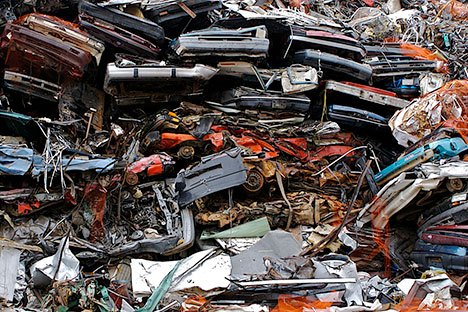
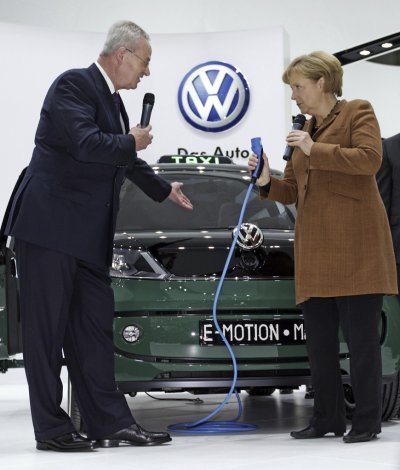
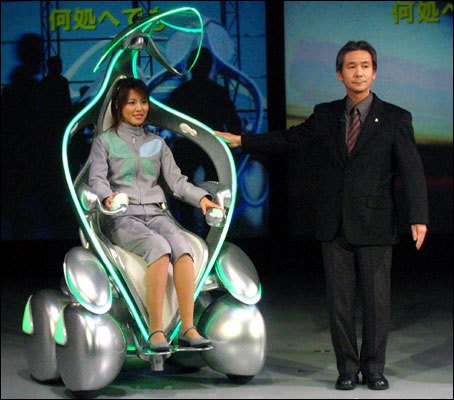


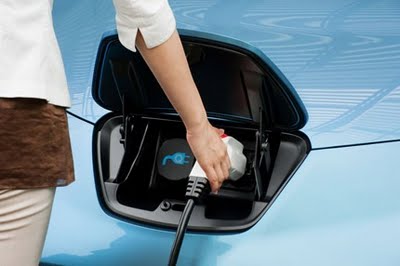
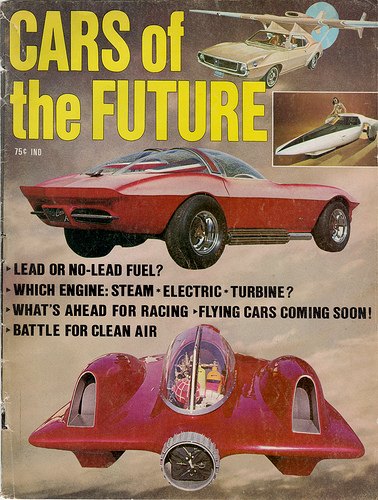
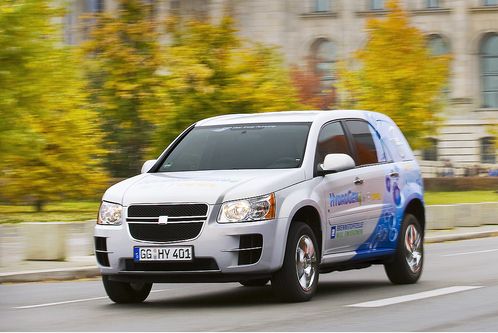



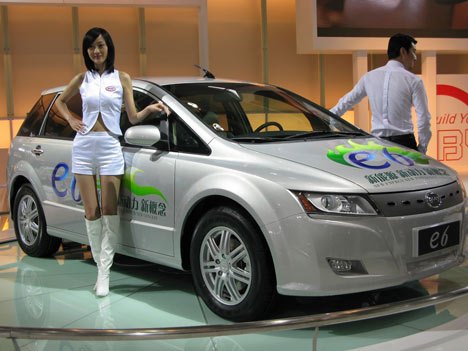



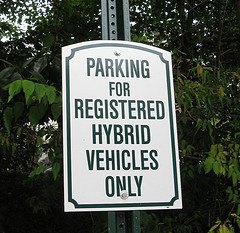
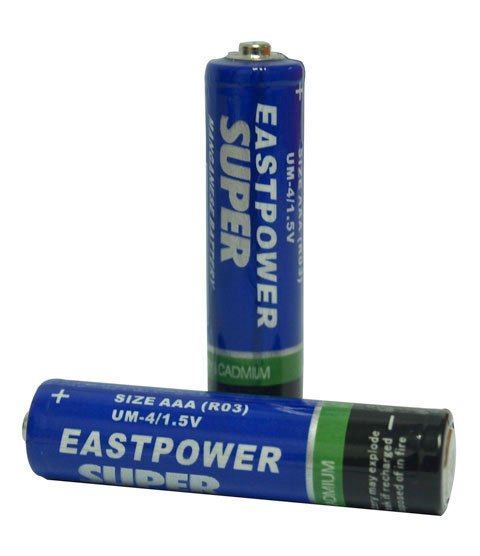
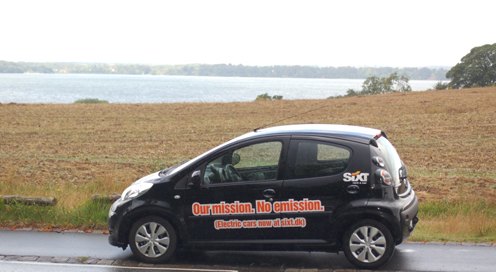
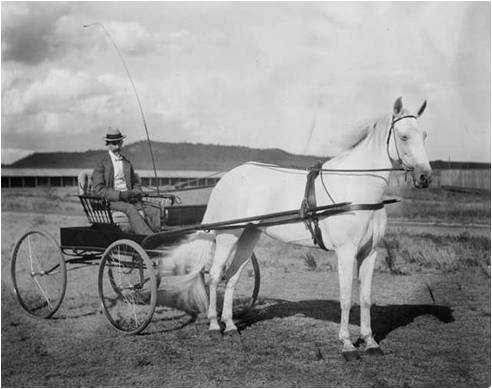
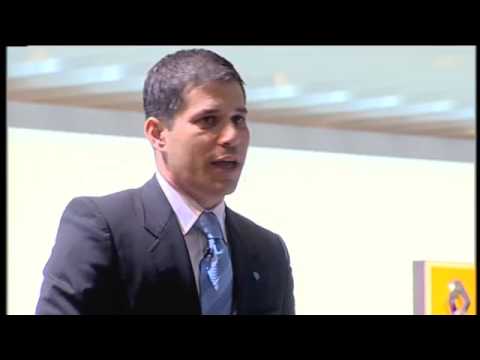

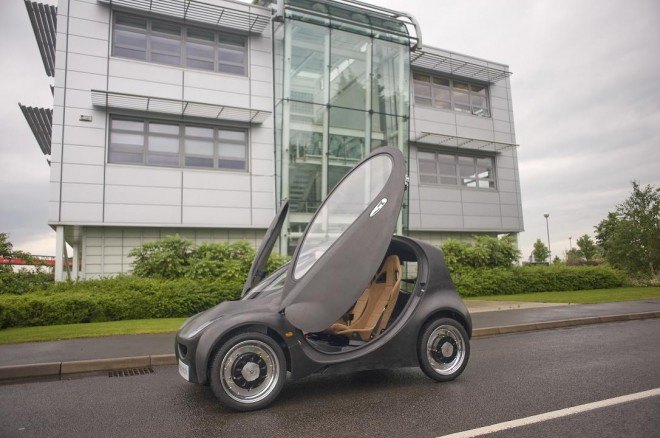



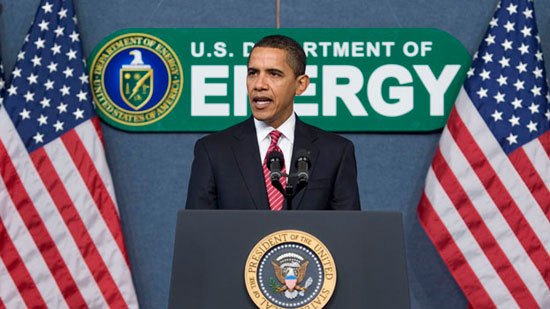
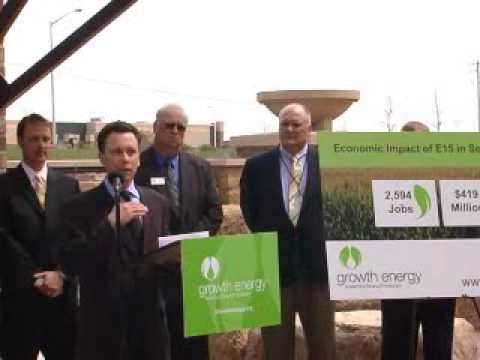
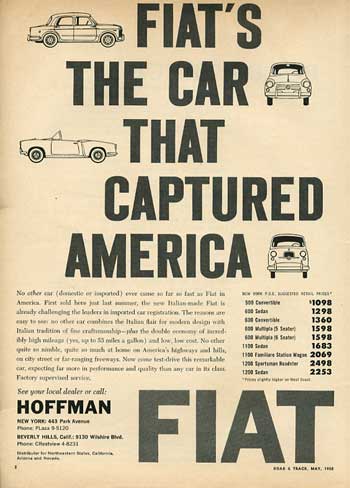

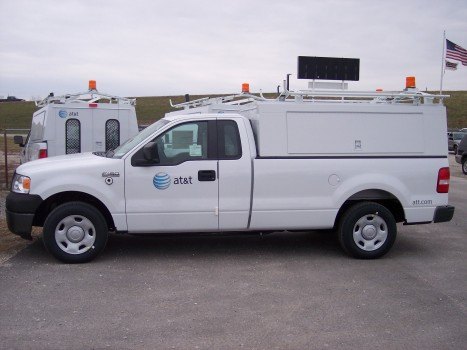
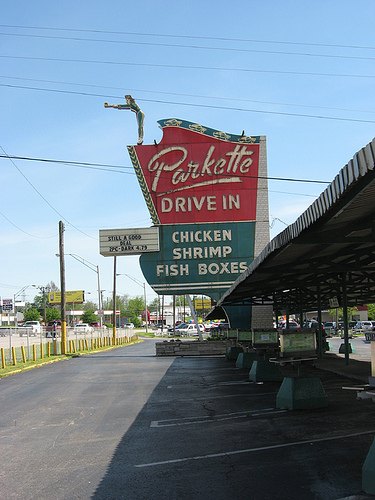

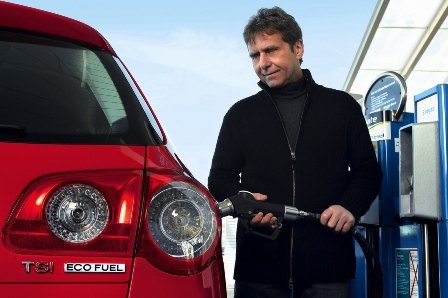
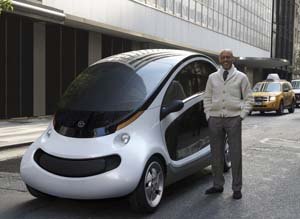

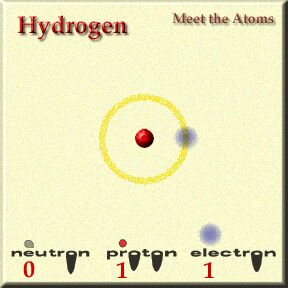




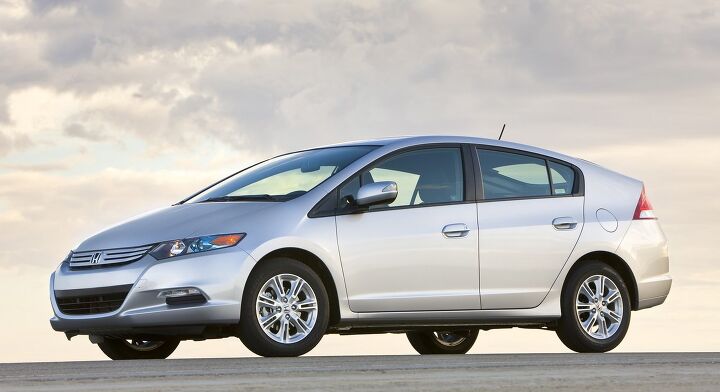

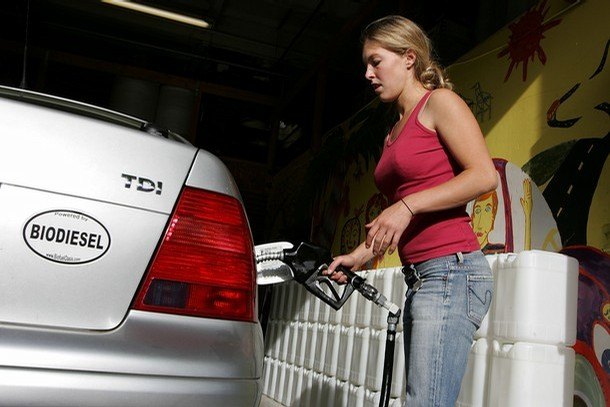


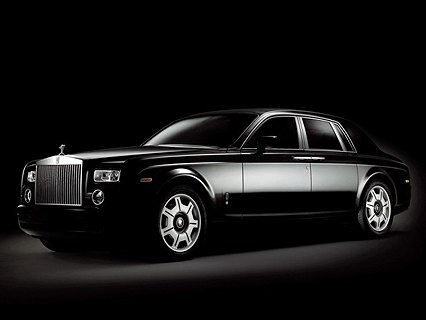
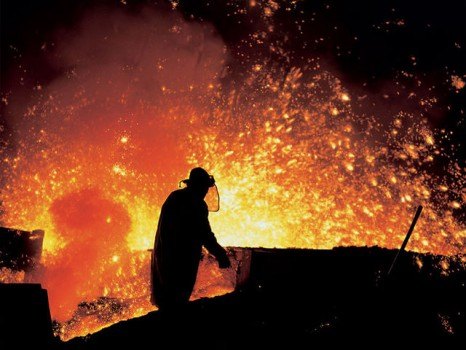
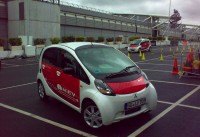

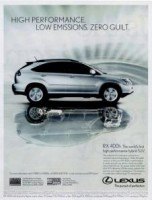
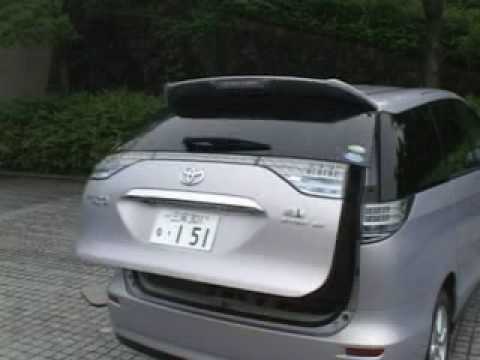
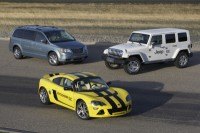

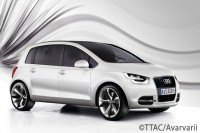
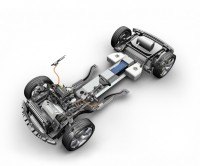

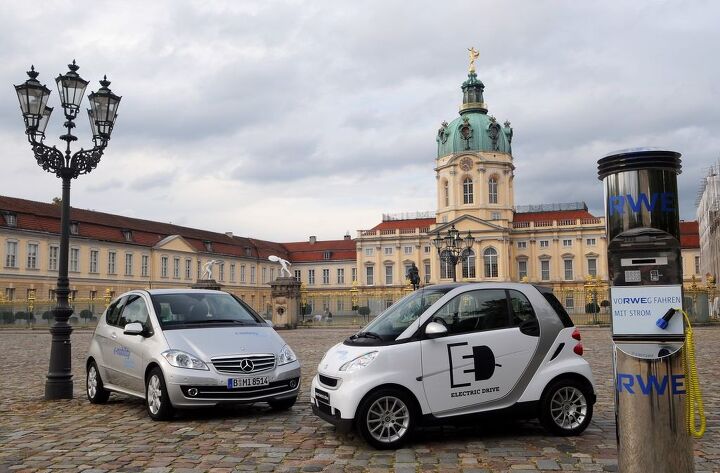
![Fuel-Efficient Cars Won't Save [The World] California](https://cdn-fastly.thetruthaboutcars.com/media/2022/07/20/9493746/fuel-efficient-cars-won-t-save-the-world-california.jpg?size=720x845&nocrop=1)












Recent Comments